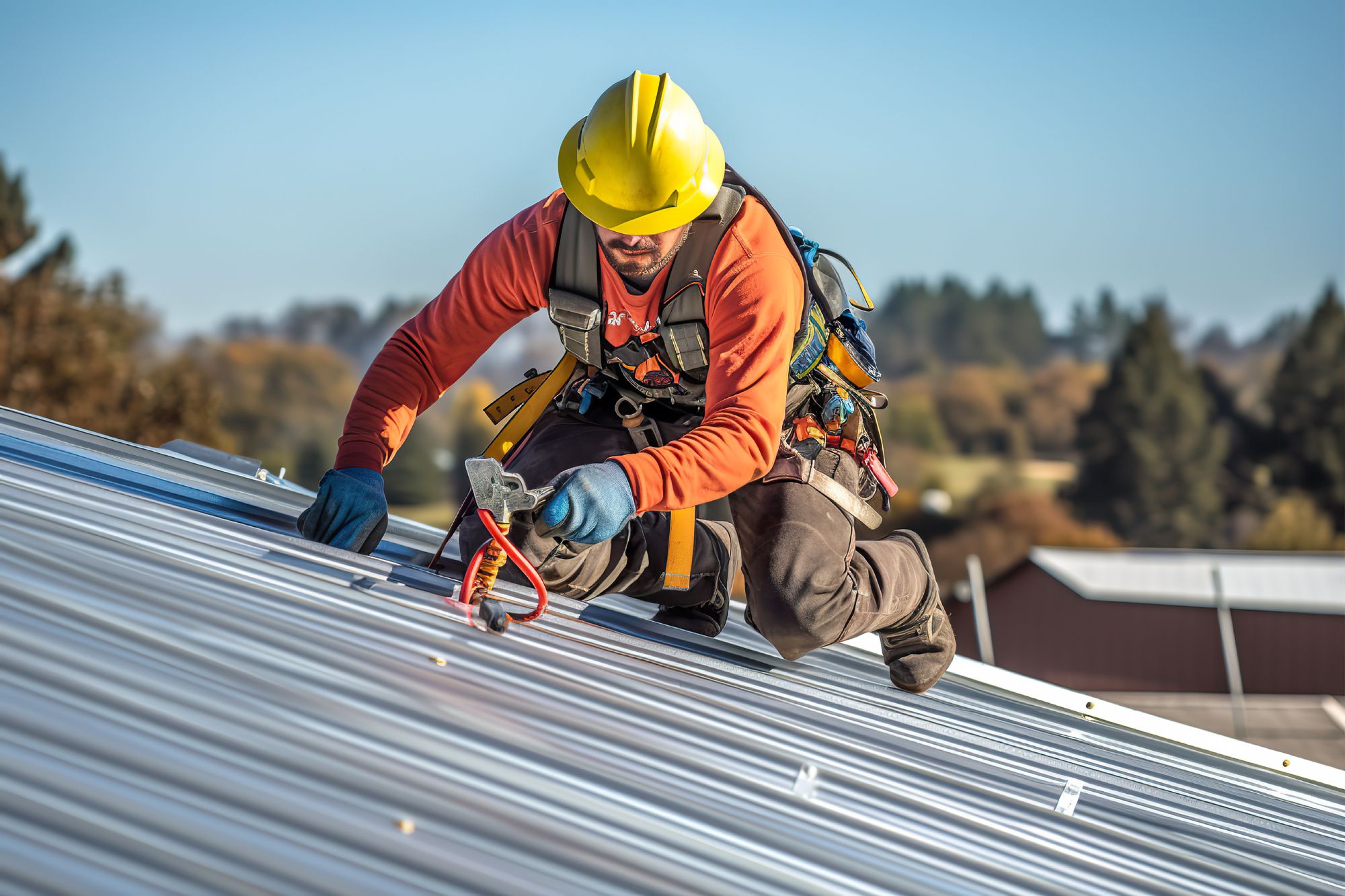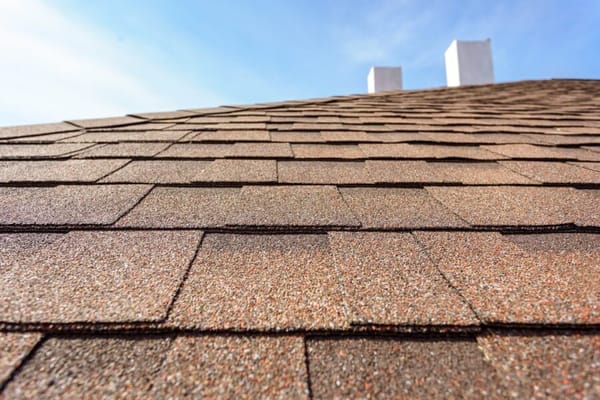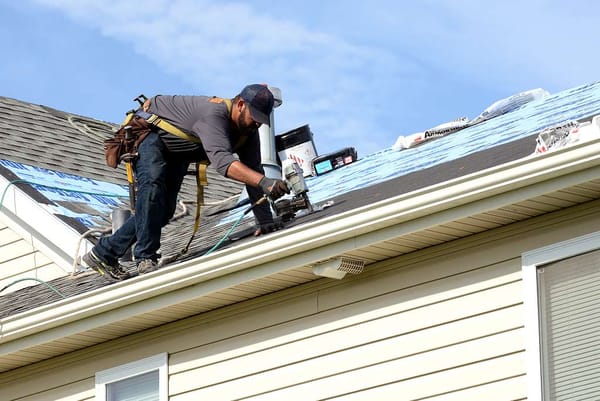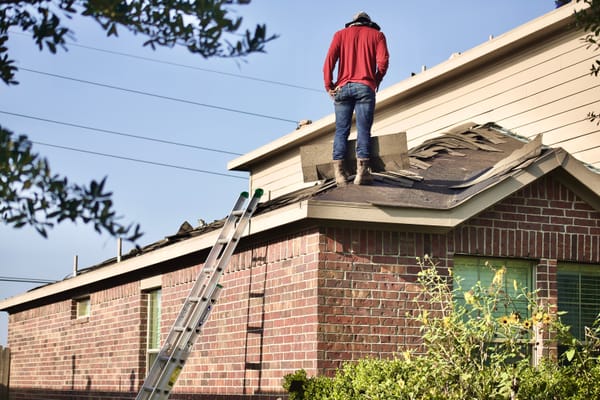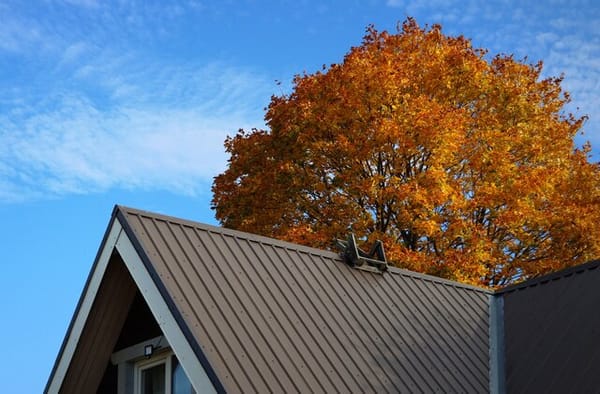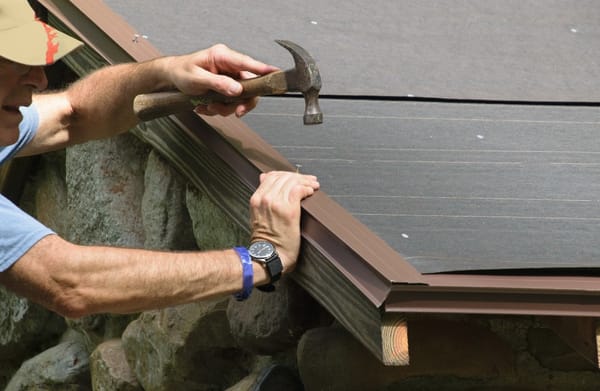The appeal of metal roofing systems is evident - they’re durable, long-lasting, and come with a unique aesthetic. But, like all things, metal roofs don’t last forever. Years of exposure to the elements can cause wear, rust, and damage. At some point, every homeowner with a metal roof faces the critical decision: should they opt for a repair or consider a complete replacement?
This article delves into the differences between metal roof replacement and repair and how to determine which one is best for you.
Considering Metal Roof Replacement
Metal roof replacement involves removing the existing metal sheets and installing new ones. It’s akin to giving your house a fresh protective shield.
Below are the main reasons why you may opt for replacement:
- Age of the Roof: Metal roofs, depending on the material – steel, aluminum, copper, or zinc – can last anywhere from 40 to 70 years. If the roof is nearing its expected lifespan, replacement might be the more economical choice in the long run.
- Extensive Damage: If a substantial portion of the roof has been damaged, be it from a natural disaster or some other significant event, replacing it might be more feasible than repairing multiple areas.
- Energy Efficiency: Newer metal roofing systems are equipped with better insulation and reflectivity properties. By replacing an older roof, you might benefit from energy savings.
- Aesthetic Upgrade: If you’re seeking to upgrade the visual appeal or perhaps sell your home, a fresh and modern metal roof might add to that needed curb appeal.
Knowing the benefits of metal roof replacement is important to help you make an informed decision about your roofing options.
When Repairs Make Sense
Repairing a metal roof involves addressing specific areas of damage or wear without replacing the entire system. Here’s when a repair might be the ideal option:
- Localized Damage: If the damage is limited to a small section of the roof, perhaps due to fallen debris or a minor incident, then it might be more cost-effective to simply repair that specific area.
- Cost-Effective: If you’re on a tight budget, repairing the problem areas can be the more affordable option, at least in the short term.
- Short-Term Plans: If you plan on relocating in the next few years, you might opt for repairs rather than investing in a whole new roof.
- Historical or Custom Roofing: Some metal roofs, especially those on historical buildings or custom-designed homes, might have unique designs or materials that you wish to preserve.
Given these benefits, you’ll determine whether a repair is the best way to protect your home from damage, save money, and extend the lifespan of your roof.
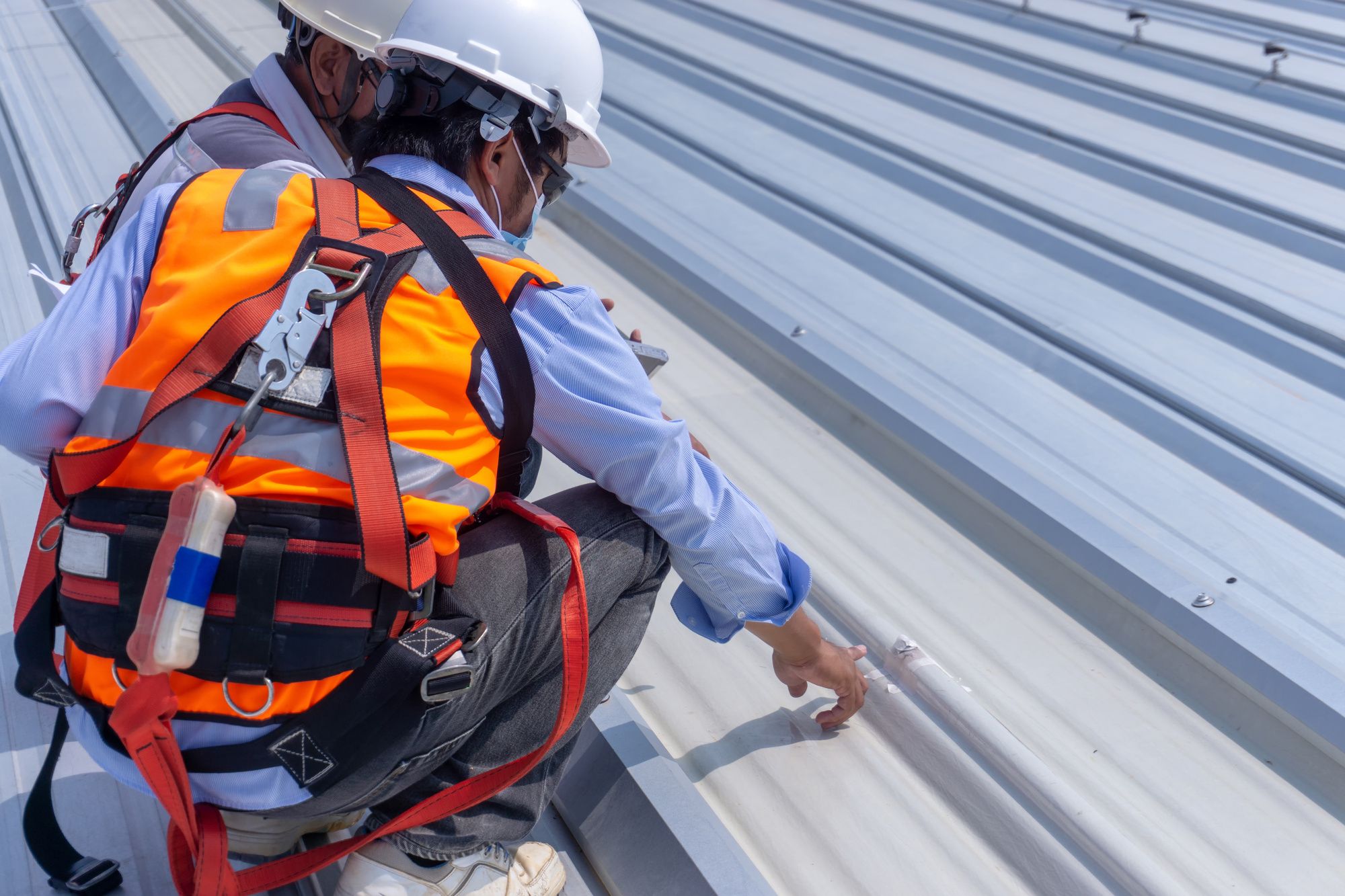
Factors To Weigh When Deciding Between Replacement And Repair
The decision between repair and replacement isn’t always clear-cut. Here are some pivotal factors to consider, ensuring you find the perfect solution for your roofing needs:
- Cost: Naturally, the cost will always be a significant determinant. While repairs are generally cheaper upfront, they might end up being more expensive in the long run if they become recurrent.
- Roof Lifespan: As mentioned earlier, if the roof is nearing its end-of-life, it might be financially wise to consider a replacement now rather than spending on frequent repairs. For example, if metal roofing is 35 years old and nearing the shorter end of its expected lifespan, a replacement can provide you peace of mind for the next several years that your roof will last much longer.
- Future Plans: Consider how long you intend to stay in the home. If selling is on the horizon, a new roof might boost your home’s market value.
- Warranty: If the repairs for your metal roof are covered under its warranty, it could be a cost-effective solution. For instance, if your roof is installed with a 40-year warranty, you can save on costly repairs if the warranty is valid.
- Local Climate: If the roof frequently faces harsh weather conditions – be it heavy snowfall, hail, or intense sun – a more resilient, newer roof might stand up to these conditions better than an older one.
Ultimately, the decision of whether to repair or replace your metal roof is a personal one. You should weigh all of the factors involved and make the decision that’s best for you and your budget. If you’re unsure, you can consult with a roofing expert to gain more insights.
Professional Inspection: A Critical Step
Typically, homeowners find it challenging to evaluate the extent of the damage and make an informed decision. Therefore, always start with a professional roof inspection. Experts can provide a detailed analysis of the current condition, potential problem areas, and recommendations for the most suitable course of action.
For instance, roofing inspectors will look at the following during an inspection:
- Leaks: Metal roofs are very good at shedding water, but they can still leak if there are any problems with the seams, flashing, or other components of the roof. A professional inspector will check for leaks in all areas of the roof, including the valleys, ridges, and around vents and chimneys.
- Loose panels: Loose panels can permit water to seep beneath the roof, causing corrosion. A professional inspector will check all of the panels on the roof to ensure they’re tight and secure.
- Corrosion: Metal roofs can corrode over time, especially in humid climates. A professional inspector will examine for any signs of corrosion on the roof, such as rust or peeling paint.
If you have any concerns about the condition of your metal roof, you should schedule a professional inspection.
Potential Challenges Associated With Replacement And Repair
While both repair and replacement have their merits, you should be aware of some potential challenges. These include:
- Matching Materials: If opting for a repair, it might be difficult to find a perfect match for older or unique roofing materials. In this case, a replacement would be a viable solution.
- Underlying Issues: Sometimes, the visible damage is just the tip of the iceberg. There could be more severe underlying problems that only a replacement might remedy, potentially saving money in the long run.
- Temporary Fix: Repairs, while cost-effective, might serve as a temporary solution. The need for frequent maintenance might become a reality, which could be both time-consuming and expensive in the long haul.
When you’re aware of the potential challenges involved, you can make more informed decisions about whether to replace or repair your metal roof.
Final Thoughts
In the great debate of metal roof repair versus replacement, there’s no one-size-fits-all answer. Each home, roof, and situation are unique. By weighing the pros and cons of each option and taking into consideration your individual circumstances and future plans, you can arrive at a decision that offers both peace of mind and financial prudence.
Furthermore, whether considering repair or replacement, always prioritize professional consultation and services. A well-maintained metal roofing system not only protects the house from the elements but also contributes to its aesthetic appeal and overall value.

